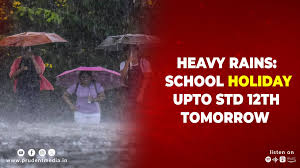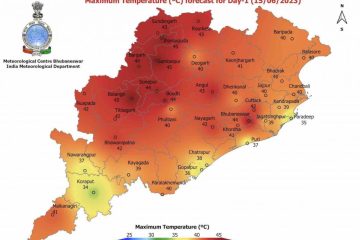Understanding School Holidays Due to Rain

Introduction
School holidays can have a significant impact on students’ learning and schedules. In many regions across India, unpredicted rain can lead to school closures, prompting discussions among parents, educators, and policymakers. The recent weather patterns indicate that school holidays due to rain are becoming more frequent, raising concerns about their implications for education and student well-being.
Recent Events
In the last month, various states like Maharashtra, Andhra Pradesh, and Kerala have experienced heavy rainfall, forcing local authorities to declare unexpected school holidays. According to the India Meteorological Department (IMD), several regions witnessed over 100 mm of rainfall in a single day, leading to disrupted normalcy in education. Reports indicate that due to safety concerns and infrastructural challenges, schools in these areas decided to close to avoid travel hazards for students. Local governments have been monitoring weather patterns closely, ensuring timely announcements to minimize inconvenience.
Impact on Students
While school holidays due to rain aim to protect students, they also cause interruptions in academic schedules. Teachers often struggle to cover the curriculum as planned. Parents express concerns about their children falling behind in their studies during extended breaks. Additionally, the social aspect of schooling is also affected, as children miss out on crucial interactions with peers during rainy seasons.
Educational Strategies
In response, many schools are adopting alternative educational strategies to mitigate these disruptions. Online classes and assignments have gained popularity, enabling educators to provide lesson continuity despite physical school closures. Some institutions have also started organizing workshops and activities during rain vacation periods to keep students engaged and enhance their learning outcomes.
Conclusion
As climate change continues to influence weather patterns, the frequency of school holidays due to rain is likely to increase. It is essential for educational stakeholders to develop adaptive strategies to minimize disruption and ensure that children do not fall behind academically. Collaboration between meteorologists, school administrations, and local governments can facilitate better management of such situations, ensuring the safety and educational progress of students. With proper planning and resource allocation, it is possible to navigate these challenges effectively, providing a stable and enriching educational environment for all.







